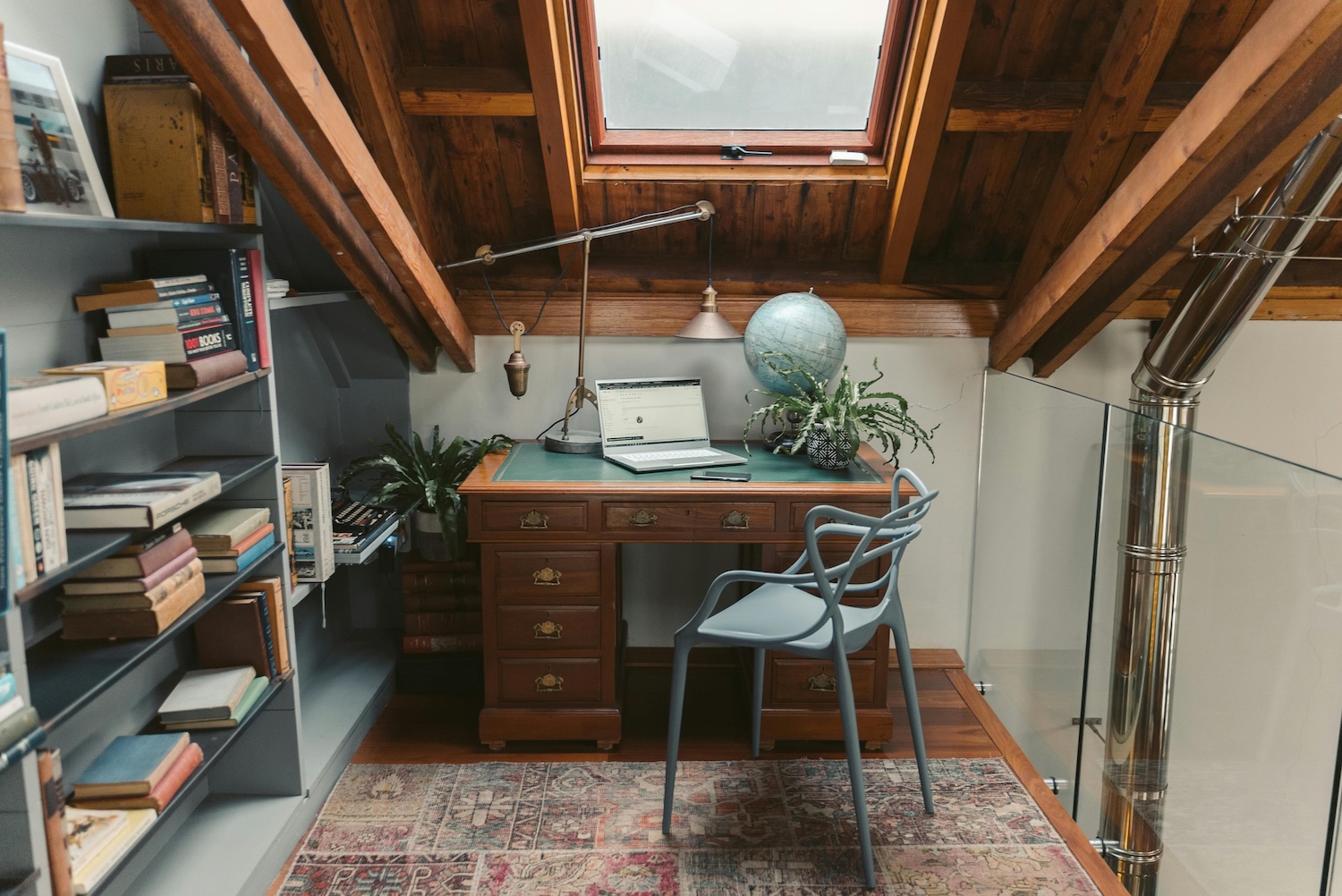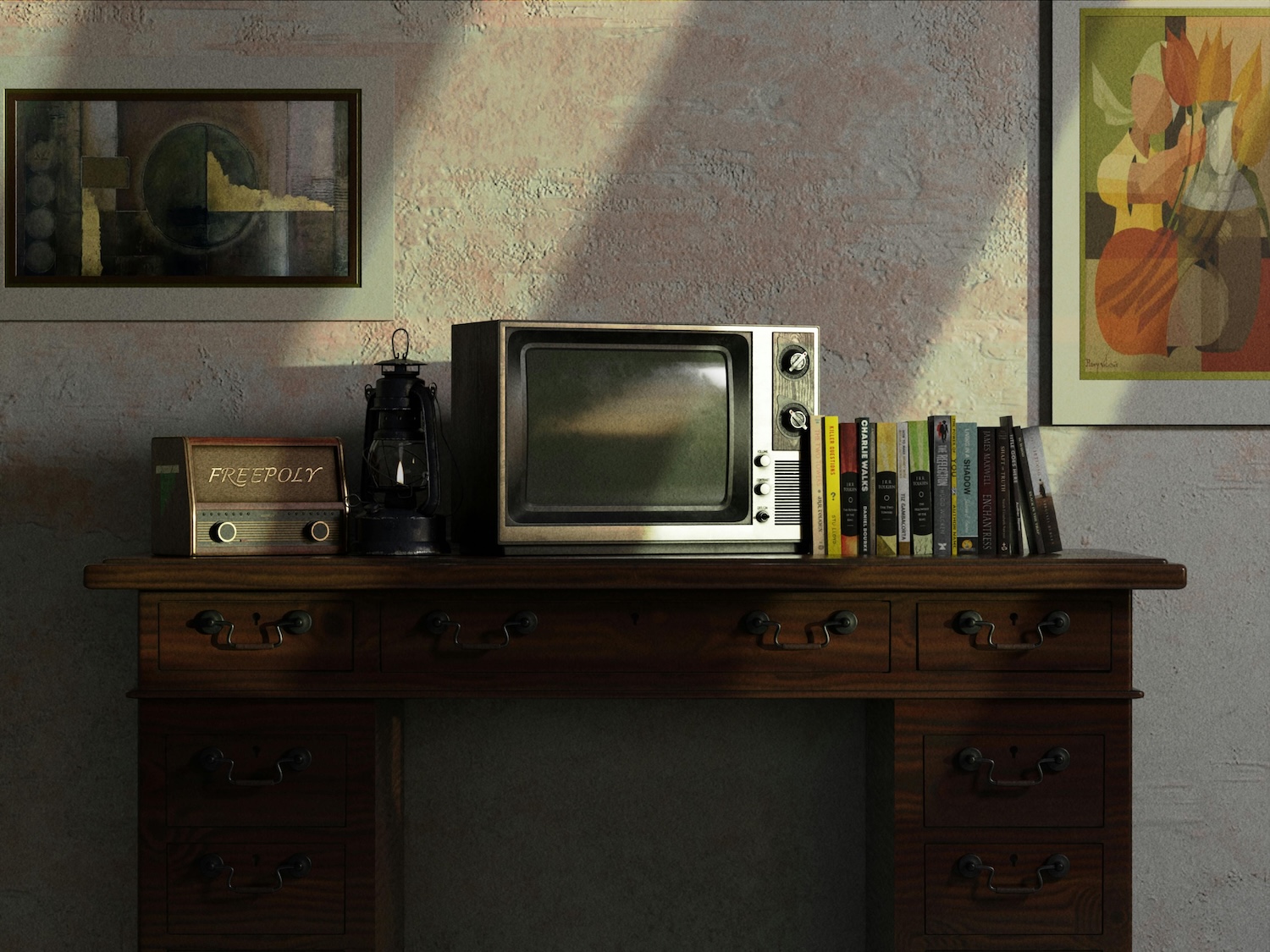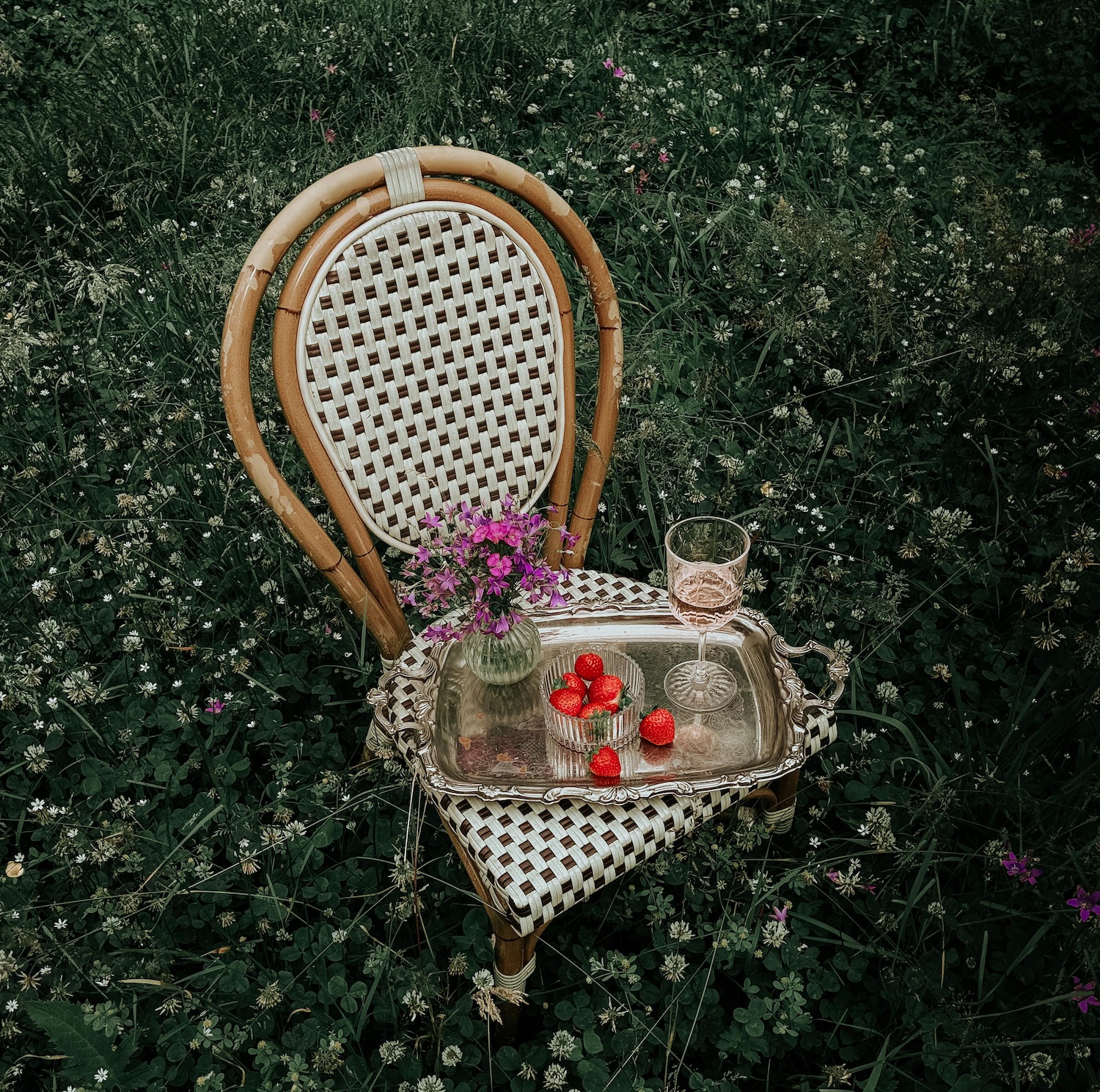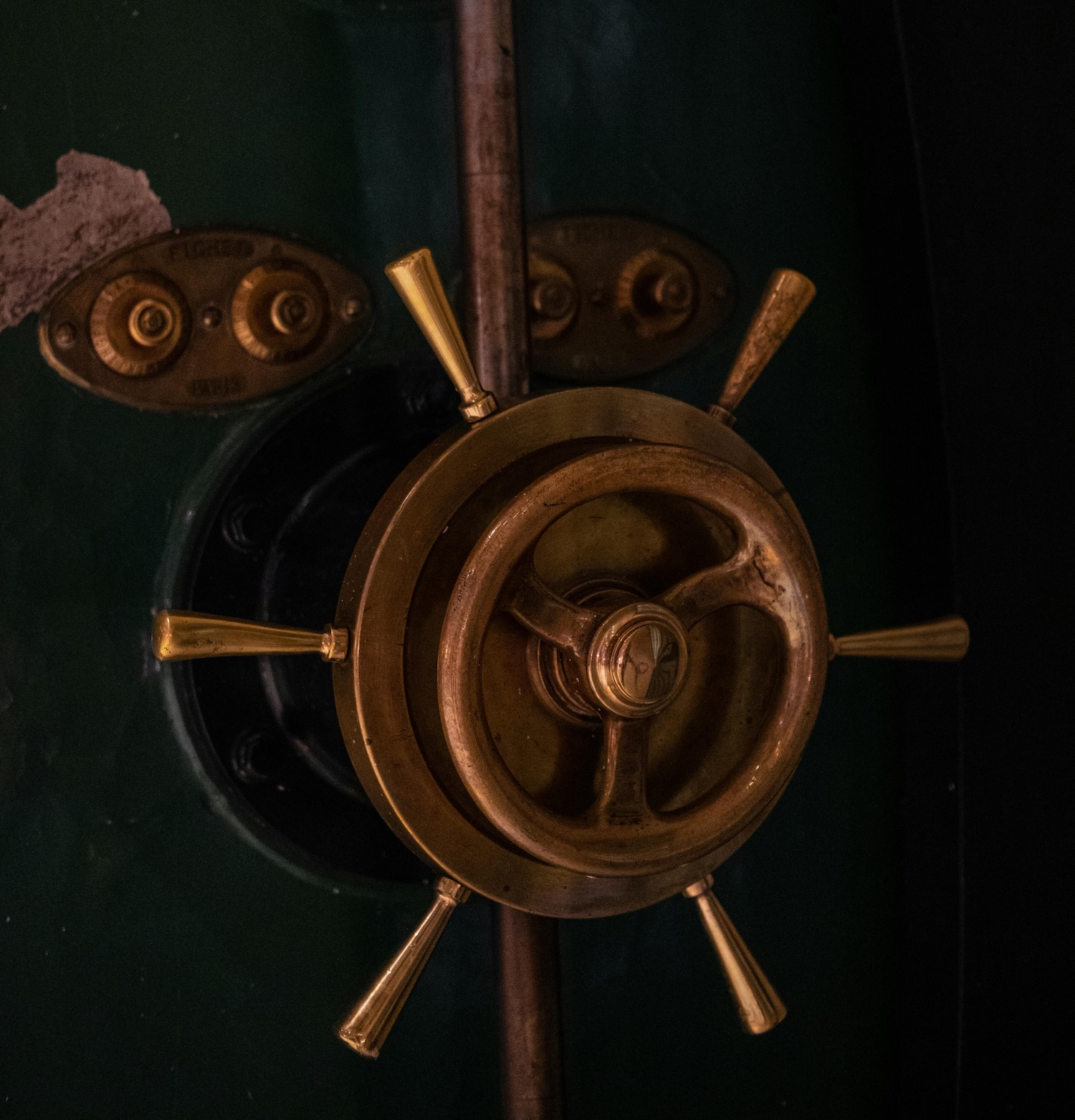
Reviving Gay Fad Studios: An iconic mid-century glassware brand lives on
Two years into a relaunch of Ohio-based glassware company Gay Fad Studios, the owners share how they are carrying a legacy while modernizing for our current moment
Whether bold and bright, or kitschy and cute, or altogether unapologetically artistic, mid-century glassware brought character to homes and style to everyday objects (and still does!).
Among the iconic names of the era, one brand is now making an inspiring return after decades out of production — Gay Fad Studios in Lancaster, Ohio.
Originally founded by Fran Taylor, the quirky and vibrant glass company operated from 1939 to 1962, and became known for its sophisticated yet playful hand-painted designs that faithfully captured mid-century aesthetics.
In 2022, 60 years after its closure, partners Jason and David Annecy relaunched Gay Fad Studios.

Now, as curious customers enter the store, the pair offer warm welcomes evocative of mid-century hosts greeting guests at a cocktail party, both of them gracious, attentive, informative and brimming with nostalgic charm — hold the Jello salad.
Their space is both a storefront and a museum, displaying new collections for every bar cart combination: short or tall, flat or fizzy.
Along the side of the store, the showcase sings a siren song to collectors and glassware enthusiasts alike, with an exhibit of vintage and archival patterns that story the brand’s evolution and entice buyers to indulge in curating an assembly of their own.
Identifying and authenticating Gay Fad glassware
With the revival of Gay Fad Studios comes new insight into the distinctive traits key to identifying and proving authenticity of pieces from the original lines of production.
Jason, bespectacled in dramatic black frames and topped with a lightsomely placed beanie, has a personal style fitting for the purveyor of the unique art glass lining the shelves of the shop.
He shares a glimpse at how to separate the genuine article from other items that might have been manufactured in a similar style of the era.
“Original Gay Fad glass would have been dipped in hydrochloric acid, which gives it a frosty appearance on the inside and outside,” he says.

While other companies relied on sandblasting, which only affected the outer surface, Gay Fad’s etching technique involves coating both the inside and outside, leaving glassware with a smooth, satin-like finish.
Typically paired with glossy, raised designs, the ceramic paints were then fired at high temperatures to become embedded in the glass and give it a shine that withstands the test of time.
While some designs were meticulously hand-painted, other pieces combined techniques such as silk-screening and acid etching, resulting in textured, layered effects.
These finer details showcase Gay Fad’s small-scale production ethos, which allowed them to offer variations in a way that larger, mass-production companies like Anchor Hocking simply couldn’t replicate.
“We do everything here in Ohio, using the same methods that were used back then,” explains Jason.
The studio is now able to recreate glassware with the look and feel of the mid-century designs but with the safety assurances of modern regulations.

Collectors can look for the telltale “GF” signature discreetly etched near the artwork on some of the older pieces. While these markings aren’t on every piece, they serve as a valuable indicator.
Jason notes that having access to original catalogues and vintage advertisements can also help enthusiasts match items to specific designs, giving an extra layer of certainty to their finds.
Retaining the vintage aesthetic without the vintage values
The story of Gay Fad starts with Fran Taylor.
A trailblazer of her time, Fran set Gay Fad Studios apart by elevating glassware with bold and colourful designs as well as by empowering women in the workforce — a bold and progressive stance for the period.

“Fran was focused on how she could amplify voices, especially those of women,” says Jason.
Fran didn’t just create a business; she created opportunities for women to explore careers in art and design.
She structured her studio as a place where women could express creativity and gain financial independence at a time when both were hard to come by.
Continued below
Find vintage and antique shops near you
Browse our directory
Continued from above
While the studio’s designs have since been celebrated for their artistry and vibrancy, mid-century glassware — like much art from that era — sometimes included imagery that we would now consider culturally insensitive. The “Jolly Minstrels” pattern, for example, is a motif that, rightly, has no home on modern shelves.
Reflecting on these pieces today involves acknowledging the history behind them, while being mindful of the diverse perspectives that were left out in their creation.
Jason recognizes both the value and limitations of designs from that time.
“We can’t deny these depictions but, as we move forward, we want to focus on some of the ways that Fran did actively work for progress — like elevating women in the workforce.”

Fran was constantly evolving and learning, and her inspiration was mirrored in Gay Fad’s designs as they moved from stereotyped imagery to more authentic cultural representations, which was rare for the time.
“As she started to travel internationally, the glasses changed,” says Jason. “We have a Tunisian set where the dancers look as if they’re captured mid-movement in celebration of their culture.”
As collectors navigate these pieces today, Jason and David encourage them to view each item with historical awareness and context.
The goal isn’t to erase the past, but to understand it, and in doing so, create a more inclusive future for Gay Fad Studios.
A legacy of glassmaking
The revival of Gay Fad Studios isn’t just a business endeavour; it’s about rekindling a legacy.
For Jason and David, the journey to reopening the shop has been rooted in connecting with the past and its community in Lancaster and the broader community of glass enthusiasts.
From tracking down original designs to engaging with families of past employees, they've woven both history and innovation into their business model.
Gay Fad now works with over 75 clients. Staying true to Fran Taylor’s ethos of small-batch, handcrafted quality items, the studio has become a creative hub, creating custom glass for weddings, local businesses, and non-profits, where each piece tells a unique story.
The most moving moments of the studio’s resurgence, however, have come from reconnecting with those who have personal ties to Gay Fad.

When the grandchildren of Gay Fad’s former art director discovered their grandmother’s role in the business, they shared her original portfolio with Jason and David.
Some of these unreleased designs are now finally being introduced to the world, bringing full circle a legacy of art, history, women’s empowerment and connection.
The partners, always happy to share their expertise, encourage new collectors to send them a message with questions or for help in identifying vintage Gay Fad finds.
“We love it when people reach out,” says David.
Future expansions
The revival of Gay Fad Studios has reignited enthusiasm for mid-century glassware in the area and beyond, building a lively community of collectors and enthusiasts across generations.
From seasoned collectors to younger homeowners seeking vintage authenticity to people shopping for wedding, birthday and housewarming gifts, Gay Fad has become a cultural hub.

“We see everyone from those who grew up with this style to younger people buying mid-century homes who want to stay true to the aesthetic,” says David. “Some collectors are even hoping to own ‘one of everything.’”
Looking to the future, Gay Fad Studios plans to expand beyond glassware into dinnerware and other household items such as decor.
“Our goal is to offer pieces that match the aesthetic of mid-century homes, creating collections people can enjoy daily.” says Jason.
Additional resources for glass collectors
Check out Bottoms Up, the only mid-century cocktail culture festival in the country, held annually in Lancaster, Ohio.
This event not only helps collectors connect with rare pieces but also reinforces the sense of community that has blossomed around Gay Fad’s legacy.
And for glass research, join the Facebook group called MCM and Vintage Cocktail and Barware. This community, boasting over 90,000 members, offers a supportive environment where collectors share their finds, ask for advice on identifying pieces, and learn more about the history and artistry behind mid-century glassware.
_____
Krista Montelpare is a freelance writer based in Nova Scotia and the founder of vintage shop Cellary.
Thank you for valuing our work!
Support our work to see this page.
You’ve got a good eye, but this gem is only available for members. Register for a plan or upgrade your current one to peek behind this vintage curtain, or log in below.















